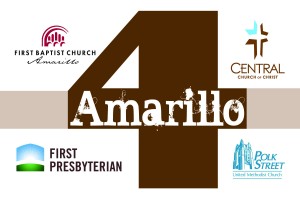 What a tremendous response! What a terrific reaction to what our God revealed to us at Central this past Sunday! And, my, how it continues even now into the middle of the week! The emails and texts that began pouring in during lunchtime Sunday are still being received today in a fairly steady stream. There’s an enthusiasm over what we’ve discovered together as a church family. There’s an overwhelming resolve to jump wholeheartedly into what our God has put in front of us. There’s a continual hum, a buzz, a current of Holy Spirit energy that’s tangible in this place. It’s real. You can feel it. We’ve tapped in to something here. Maybe… God’s holy will?
What a tremendous response! What a terrific reaction to what our God revealed to us at Central this past Sunday! And, my, how it continues even now into the middle of the week! The emails and texts that began pouring in during lunchtime Sunday are still being received today in a fairly steady stream. There’s an enthusiasm over what we’ve discovered together as a church family. There’s an overwhelming resolve to jump wholeheartedly into what our God has put in front of us. There’s a continual hum, a buzz, a current of Holy Spirit energy that’s tangible in this place. It’s real. You can feel it. We’ve tapped in to something here. Maybe… God’s holy will?
Allow me to share with you in this space today the heart of the message we heard together Sunday from God’s Word. Tomorrow, my plan is to share some of the response to the message in an effort to further process what happened Sunday.
The lesson Sunday came from the last part of Jesus’ prayer in John 17, his plea for unity among all future believers. It served as the culmination of our sermon series on this powerful prayer. And it provided the theological base for our “4 Amarillo” partnership with First Baptist, First Presbyterian, and Polk Street Methodist.
My prayer, Jesus says, is that all of them may be one. May they be brought to complete unity. It’s this unity, this uncompromising love and acceptance we have for all baptized Christian believers that will prove to the world Jesus really is who he says he is and who we say he is. Our unflinching dedication to love and defend all Christians, to worship and serve with all Christians, will astonish the world. 
Well, Allan, not all people who’ve been baptized, right? I mean, a lot of people are baptized in different ways than we are, and for different reasons. We can’t worship with and have fellowship with all Christians.
That’s why the church is not astonishing the world.
Christ’s prayer is for unity. Christ’s will is for complete unity among all his followers today. So, let’s go there.
If God accepts someone, I must also accept them, too, right? I can’t be a sterner judge than the perfect judge, can I? Nobody would say, “Well, I know that God accepts this woman as a full child of his, I know she’s probably saved, but she doesn’t meet all of my standards in the things she believes and the way she worships, so I’m not going to accept her.” Nobody would say that. We must fellowship everyone who has fellowship with God. We must fellowship everyone who is saved. All the saved.
So… who are the saved?
There was a time when we would say everyone who hears, believes, repents, confesses, and is baptized is saved. OK, for the sake of this discussion, let’s go with that. The next question is, “He who hears what?”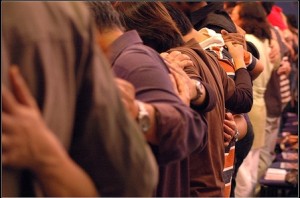
“The Gospel!”
“She who believes what?”
“The Gospel!”
“Whoever repents and confesses and is baptized by what or through what or into what?”
“The Gospel!”
Right. That means the next question is… what is the Gospel?
That Jesus Christ is the Son of the living God, that he alone is Lord, and that we are saved by faith in him. You might check out 1 Corinthians 15:1-8 or several other places in Scripture where Paul sums up the Gospel. It seems pretty clear that it’s about declaring Jesus as Lord and as the only way to the Father and submitting to his lordship in baptism and in a new way of life. We’ve never required anything else. The Church has never asked for another confession. We’ve never asked anybody their position on women’s roles or children’s worship before they’re baptized. We don’t put a teenager in the water and catalog all his views and opinions on instrumental worship before he’s saved. (Unfortunately, some of us do that about a month later.) That stuff is not Gospel. Paul says it’s nothing but Christ and him crucified.
 Romans 15:7 says we are to accept one another as Christ accepted us. We are to receive others by the same standards we were received at our baptisms. You know, your acceptance by God is a gift. That fact that Christ Jesus has accepted you is pure grace. The imperative for us is to extend that same gift, to show that same grace, to all others who have received it from our Lord.
Romans 15:7 says we are to accept one another as Christ accepted us. We are to receive others by the same standards we were received at our baptisms. You know, your acceptance by God is a gift. That fact that Christ Jesus has accepted you is pure grace. The imperative for us is to extend that same gift, to show that same grace, to all others who have received it from our Lord.
Well, what about the Christian who disagrees with me on divorce and remarriage, or on the age of the earth? What about the Christian who doesn’t see church names or the Lord’s Supper the way I do? What about our discord over steeples or shaped notes?
In Romans 14-15, the issues are eating mean versus vegetables and the observance of holy days. And Paul knows what’s right and wrong. He knows the correct answer. There is a right and wrong on these matters. But Paul says, in Christ Jesus, it doesn’t matter. You don’t believe me? Read Romans 14:1-15:7.
Now, here’s where it gets us. You ready?
Do you believe that you are perfect? Do you believe you have God’s will completely and perfectly figured out? That you are living exactly right, that you believe everything exactly right, that your worship is exactly right according to God’s plans? Do you think you know everything and do everything perfectly? No? That’s what I thought. Then what in the world saves you? What covers you in your innocent mistakes? What saves you in your accidental misunderstandings and your sincere misinterpretations? Why, it’s God’s grace, of course. His matchless grace.
Do you believe that the Churches of Christ are perfect? Do you think that the CofCs have everything totally figured out? That we are worshiping exactly right, that our leadership structures are completely lined up with God’s intent, that we have all of God’s will entirely mapped out and expressed perfectly? No? That’s what I thought. Then what in the world saves us? What covers us in our innocent mistakes? What saves us in our accidental misunderstandings and our sincere misinterpretations? Why, God’s grace. Yes, his wonderful grace.
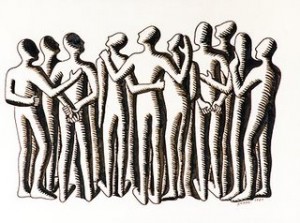 You think there’s any chance at all the Methodists might be doing something right according to the will of God that we’re not? You think the Presbyterians might possibly have something figured out that we don’t? What if the Baptists’ understandings of something in the Bible are richer and fuller than ours? What if another group’s practice is more in line with God’s will than ours? Is it even possible? Yes, of course. Then, what covers us in our innocent mistakes and accidental misunderstandings and sincere misinterpretations? Grace. Yeah, I know.
You think there’s any chance at all the Methodists might be doing something right according to the will of God that we’re not? You think the Presbyterians might possibly have something figured out that we don’t? What if the Baptists’ understandings of something in the Bible are richer and fuller than ours? What if another group’s practice is more in line with God’s will than ours? Is it even possible? Yes, of course. Then, what covers us in our innocent mistakes and accidental misunderstandings and sincere misinterpretations? Grace. Yeah, I know.
Now, let’s assume that we have it right on the Lord’s Supper and the Methodists have it wrong. Let’s pretend that we’re right about baptism and a plurality of elders and the Presbyterians and Baptists are wrong. Does the grace of God not cover them completely in their innocent mistakes and accidental misunderstandings and sincere misinterpretations? Are they any less saved?
But they’re wrong and we’re right!
So you get God’s grace where you lack understanding but they don’t? You get the grace of God in your misinterpretations of God’s will but they don’t? Why? Because you try harder? Because we’re more sincere? Because, somehow, we deserve it?
Whoa.
The unbelieving world looks at that and says, “No, thanks.” And I don’t blame them. A religion as visibly divided as ours does not reflect the truth. It reflects our fallen world, not the glory of our God.
Our Christian unity will have an eternal impact on our world. But the world has to see it. Our unity, which already exists as a gift from God, must be visible. It must be practiced and experienced. When it is, the world will believe.
A Methodist preacher, a Church of Christ preacher, a Baptist preacher and a Presbyterian preacher all walk in to a bar is the first line of a bad joke. The Methodist church, the Church of Christ, the Baptist and Presbyterian churches all putting aside their differences to worship and serve together for the sake of the city is a serious and everlasting testimony to the love and power of God! Our “4 Amarillo” efforts are a witness to the world that this is for real! That Christ Jesus is our King! That the world really is changing! That hearts are being melted and people are being transformed! That barriers are being destroyed and walls are coming down! That the devil has been defeated and the Kingdom of God is here!
Peace,
Allan









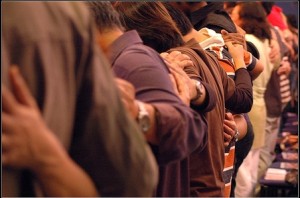
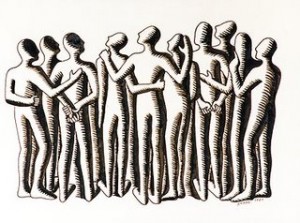


Recent Comments